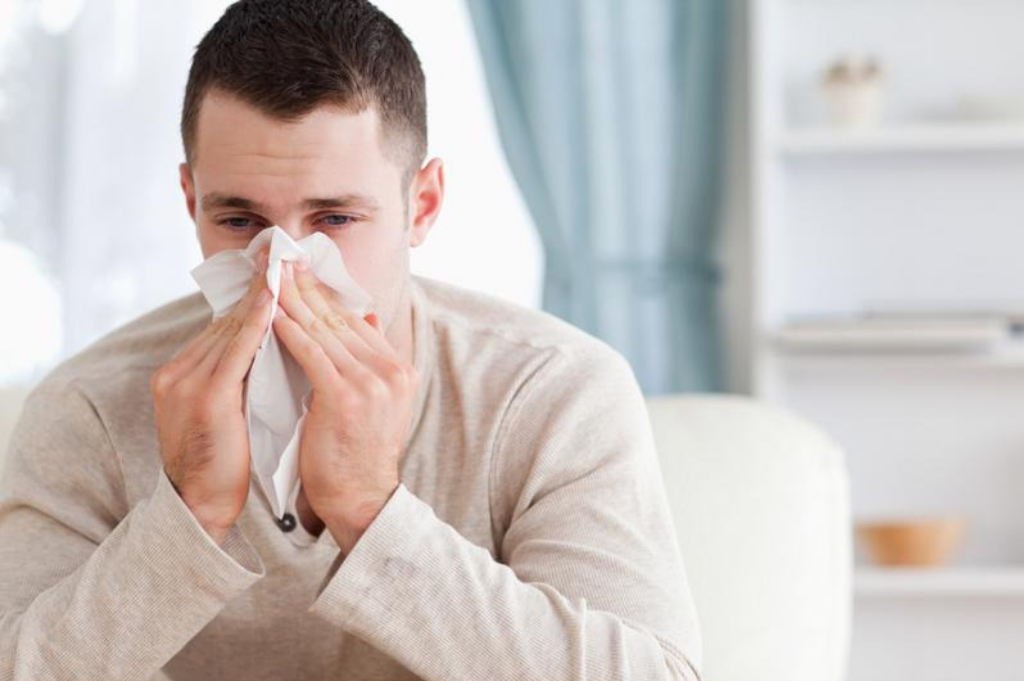Depending on certain facets of athletes' exercise regimens, these individuals may be susceptible to a compromised immune system. Specifically, this applies to athletes who have a heavy competition schedule, don't dedicate enough time to recovery or are training at high intensity for prolonged periods of time. A study published in the journal Immunology and Cell Biology revealed the effects of overtraining syndrome, a condition that occurs as a result of excessive exercise. A neuroendocrine disorder, overtraining syndrome correlates with poor athletic performance, persistent fatigue, disturbed sleep and frequent illness.
The researchers noted that the deficient immune system is a result of the excessive exercise rather than the side effects of overtraining syndrome. Immune deficiency as a consequence of high-intensity training occurs from a decrease in neutrophil function and number of natural killer cells, a type of white blood cell critical to the immune system's function. As a result, athletes with this condition may be prone to more prevalent or severe illnesses.
The effects of stress on the immune system
The physiological changes that occur while exercising aren't the only factors contributing to a potentially deficient immune system. Though working out can reduce anxiety, certain athletes are under levels of stress that may not be subdued with physical activity. Take college athletes, for instance. Balancing a full-time school workload with frequent practices and independent training can be a difficult mental and physical burden to carry. The resulting stress can play a significant role in their overall well-being.
A meta-analytic study of literature discussing the link between physiological stress and the human immune system discovered some common patterns that shed more light on the subject. Researchers reviewed more than 300 empirical studies on the topic. They found that stress, no matter how long the duration, hinders the entire immune system. Whether an athlete experiences anxiety about an upcoming game or worries about his or her performance throughout an entire season, the body's main defense mechanism is weakened.
A well-balanced diet as a health solution
Research published in the Journal of Sport Sciences not only corroborated the findings that strenuous exercise can depress immune cell function, but it also offered athletes methods to combat this deficiency. Specifically, researchers advised individuals who engage in intense aerobic activity to supplement their diets with iron, zinc and vitamins A, E, B6 and B12. Chicken, beans and spinach are all excellent sources for these nutrients.
"Strenuous exercise can depress immune cell function."
Furthermore, the study explained that when athletes exercise in a carbohydrate-depleted state, they are more likely to experience the physiological symptoms of stress and diminish their immune functionality. As such, it's crucial for athletes to incorporate enough carbohydrates into their diets.
Massage therapy's role in athlete health
Massage may also help boost athletes' health and lower stress levels. A study published in the Journal of Alternative and Complementary Medicine found that a single massage could produce measurable benefits for the immune system. Participants included 53 healthy adults between the ages of 18 and 45. One group, composed of 29 adults, received a 45-minute Swedish massage, while the other group underwent a light touch control condition for the same duration. Researchers took blood samples from participants before the massage and light touch control condition, and then at regular intervals throughout the hour following the treatment. The results demonstrated that those who received a Swedish massage experienced a decrease in arginine vasopressin and cortisol, both of which can prevent the immune system from functioning optimally.
Though participants of this study received a professional massage, you may be able to recreate the same benefits with your own personal massager. Using this tool before and after a workout gives you the best benefits of massage.

